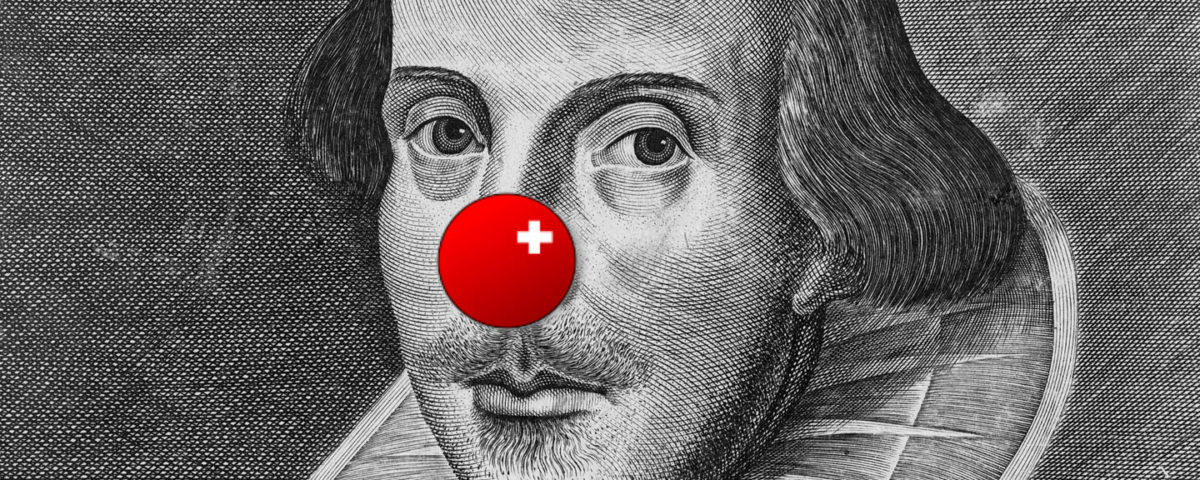CLOWNS IN SHAKESPEARE WORKSHOP

Duration:
Various ( 1 Hour - Full Day)Suitability:
Grades 10 to 12Available Terms:
Terms 1 - 4CLOWNS IN SHAKESPEARE WORKSHOP
Venue: Double Teaching Space, Drama Room, Studio, Theatre, Hall
Students will meet two distinct types of Shakespearean clowns: the rustic, uneducated fool and the quick-witted, satirical court jester.
They’ll dive into:
- Comic business, wordplay, and improvisation based on Shakespeare’s language.
- Physical comedy and non-verbal storytelling techniques to enhance Shakespearean performance.
- Textual analysis of comedic scenes from plays like Twelfth Night, The Tempest, Much Ado About Nothing, King Lear, and As You Like It.
- Practical exploration of how clowns navigate social structures, reveal hidden truths and create laughter and empathy.
THEMES & CONTEXTS
- The power of humour and play in Shakespeare’s storytelling.
- The connection between language, physicality, and characterisation.
- Exploring resilience, social commentary, and emotional intelligence through comedy.
- The historical and theatrical significance of Shakespeare’s clowns in Elizabethan England and today.
KEY LEARNING OUTCOMES
ENGLISH (Literary Studies):
-
- Interpretation of Shakespearean language through performance and play.
- Analysis of text focusing on humour, subtext, and character motivation.
- Developing a multimodal understanding of how non-verbal and verbal storytelling combine to shape meaning
DRAMA (Performance Skills):
-
- Physical theatre, mime, and clowning techniques adapted to Shakespearean text.
- Developing comic timing, ensemble collaboration, improvisation, and character embodiment.
- Building expressive skills through movement, gesture, and voice.
GENERAL CAPABILITIES:
-
- Critical & Creative Thinking: Interpreting text creatively; understanding satire and subtext.
- Personal & Social Capability: Collaborative creation, emotional expression, and teamwork.
- Ethical Understanding: Analysing moral ambiguity through the eyes of Shakespeare’s clowns.
DRAMA (Years 10–12):
Years 10
- ACADRM046: Develop and refine expressive skills in voice and movement to communicate characters and situations, applying comic timing, improvisation, and physical theatre techniques central to Shakespeare’s clowns.
- ACADRM047: Structure drama by exploring Shakespeare’s comedic and satirical conventions to engage an audience.
- ACADRM048: Perform devised and scripted drama, applying knowledge of historical performance styles such as Elizabethan clowning while creatively integrating physical humour, wordplay, and audience engagement.
Senior Drama (Years 11–12)
Contemporary and Classical Theatre Studies:
- Investigate using satire and wit to investigate how Shakespeare’s clown characters reflect social and political commentary.
- Explore the impact of historical context on dramatic meaning, characterisation, and performance techniques.
Performance Making and Acting Skills:
- Develop sophisticated characterisation through physical, vocal, and imaginative performance techniques.
- Apply improvisation, playfulness, and non-verbal storytelling to reinterpret classical texts for contemporary audiences.
Critical Analysis:
- Analyse performance styles, devices, and theatrical conventions used to represent complex ideas through humour, irony, and parody.
ENGLISH (Years 10–12):
Years 10
- ACELY1742: Create sustained and cohesive spoken and multimodal texts using irony, satire, parody, and sophisticated physical storytelling.
- ACELT1639: Analyse and evaluate how authors (such as Shakespeare) use language and dramatic conventions to create humour, character complexity, and social critique.
- ACELY1752: Deliver presentations, selecting and employing various verbal and non-verbal communication strategies to engage and entertain audiences effectively.
Senior English (Years 11–12)
Literary Studies and English General:
- Study of Shakespearean plays, focusing on the representation of clowns and fools and the use of humour as a literary device.
- Analyse how characterisation, dramatic irony, and social commentary are constructed through dialogue, movement, and audience interaction.
- Explore how non-verbal communication enhances meaning in literary and dramatic texts.
Multimodal Communication:
- Develop multimodal texts incorporating physical performance and expressive storytelling.
- Critique how non-verbal elements such as gesture, movement, and space shape meaning and emotional impact in performances and adaptations of Shakespearean works.
Devised by: Clint Bolster